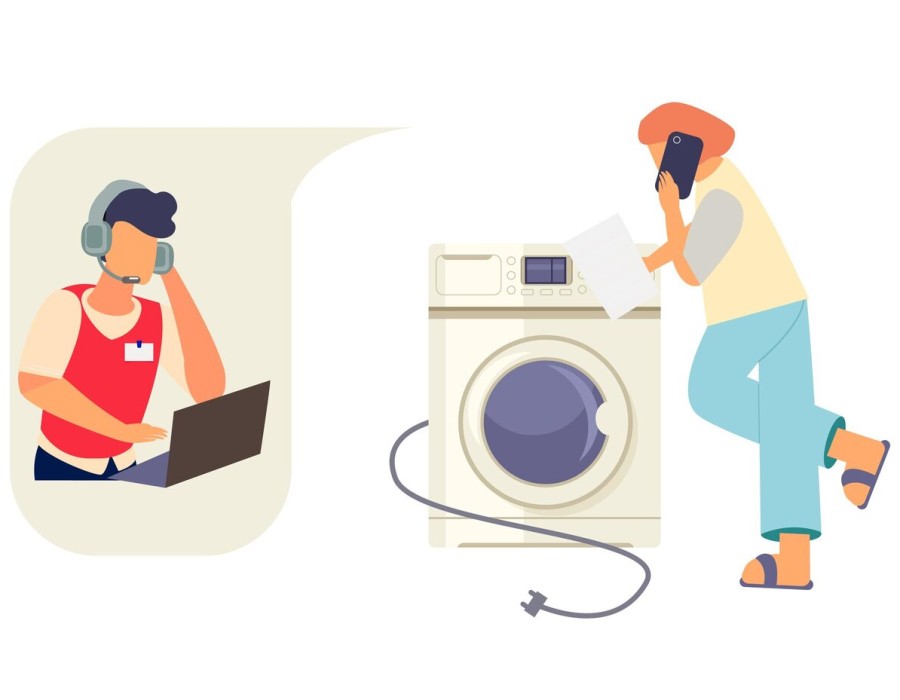In today's fast-paced world, convenience is king. From food delivery to transportation, modern consumers crave services that can seamlessly integrate into their busy lifestyles. One industry that has seen a significant transformation in recent years is laundry services. Traditionally, doing laundry meant dedicating precious time and effort to sorting, washing, drying, and folding clothes. However, with the rise of Uber-like laundry solutions, the landscape of laundry services is undergoing a revolution, offering consumers a convenient alternative to the traditional approach.
Evolution of Laundry Services
The history of laundry services dates back centuries, with manual washing methods being the norm for much of human history. As societies evolved, communal laundry facilities and later, commercial laundromats, became popular solutions for those without access to personal washing machines. However, these options still required individuals to physically transport their laundry to a separate location and wait for it to be processed.
The advent of the internet and mobile technology introduced a new era of convenience. Online laundry booking platforms emerged, allowing customers to schedule laundry pickups and deliveries from the comfort of their homes. While these platforms represented a step forward in terms of convenience, they still lacked the immediacy and flexibility that modern consumers increasingly demand.
The Uber Influence
Enter Uber, the transportation company that revolutionized the way people think about getting from point A to point B. Uber's on-demand model, powered by a user-friendly mobile app, allows individuals to request rides at the touch of a button, track their driver's location in real-time, and pay seamlessly through the app. This same model has now been applied to laundry services, giving rise to a new breed of on-demand laundry startups.
Convenience in the Digital Age
In today's digital age, convenience is no longer just a luxury – it's an expectation. With busy schedules and competing priorities, consumers are constantly seeking ways to streamline their daily tasks. Uber-like laundry solutions offer a convenient alternative to the traditional laundry process by bringing the service directly to the customer's doorstep.
Whether it's a busy professional juggling work and family responsibilities or a college student with a hectic class schedule, on-demand laundry services cater to individuals who value their time and convenience above all else. By eliminating the need for trips to the laundromat or the hassle of washing clothes at home, these services give customers the freedom to focus on what matters most to them.
Technology and Innovation
At the heart of Uber-like laundry solutions is technology. Mobile apps serve as the primary interface between customers and service providers, allowing for seamless booking, scheduling, and payment. Features such as real-time tracking and notifications keep customers informed every step of the way, ensuring a transparent and stress-free experience.
In addition to convenience, these platforms also prioritize quality and reliability. Customers can expect their laundry to be handled with care by trained professionals, using industry-standard equipment and eco-friendly detergents. Feedback mechanisms and customer reviews help maintain high standards of service, providing valuable insights for continuous improvement.
Sustainability and Environmental Impact
In an increasingly eco-conscious world, sustainability is a key consideration for many consumers. Traditional laundry methods often involve large amounts of water and energy consumption, as well as the use of harsh chemicals that can harm the environment. Uber for Laundry service app addresses these concerns by implementing efficient practices and eco-friendly initiatives.
By optimizing routes and scheduling, on-demand laundry services minimize fuel consumption and reduce their carbon footprint. Many providers also offer environmentally friendly detergent options and promote responsible water usage. By choosing these services, customers can not only save time and effort but also contribute to a cleaner, greener planet.
Challenges and Opportunities
Despite their many benefits, Uber-like laundry services are not without their challenges. Regulatory hurdles and competition from traditional laundry businesses pose significant obstacles to growth and expansion. However, as consumer demand for convenience continues to rise, the opportunities for innovation and disruption are endless.
Successful startups in the on-demand laundry space have demonstrated the viability of the business model and the potential for long-term success. By staying agile and responsive to changing market dynamics, these companies can carve out a niche for themselves and establish a loyal customer base.
Also Read: Successful Social Media Marketing Strategy
Case Studies and Success Stories
Several on-demand laundry startups have already made a name for themselves in the industry. Companies like Rinse, Cleanly, and Laundrapp have successfully capitalized on the demand for convenient laundry services, leveraging technology to differentiate themselves from traditional competitors.
Through strategic partnerships, innovative marketing campaigns, and a relentless focus on customer satisfaction, these companies have achieved impressive growth and profitability. By studying their strategies and learning from their successes (and failures), aspiring entrepreneurs can gain valuable insights into what it takes to succeed in the on-demand laundry market.
Future Outlook
As technology continues to evolve and consumer expectations evolve along with it, the future of Uber-like laundry solutions looks bright. Advancements in automation, artificial intelligence, and robotics have the potential to further streamline the laundry process, making it even more convenient and efficient for customers.
Additionally, as sustainability becomes an increasingly important consideration for consumers, on-demand laundry services will need to continue innovating to minimize their environmental impact. By embracing new technologies and adopting eco-friendly practices, these services can position themselves as leaders in the quest for a more sustainable future.
Conclusion
The rise of Uber-like laundry solutions represents a significant shift in the way we think about laundry services. By prioritizing convenience, technology, and sustainability, these services are not only meeting the needs of modern consumers but also shaping the future of the industry. As demand continues to grow and technology continues to advance, the possibilities for innovation and growth are limitless.





Comments